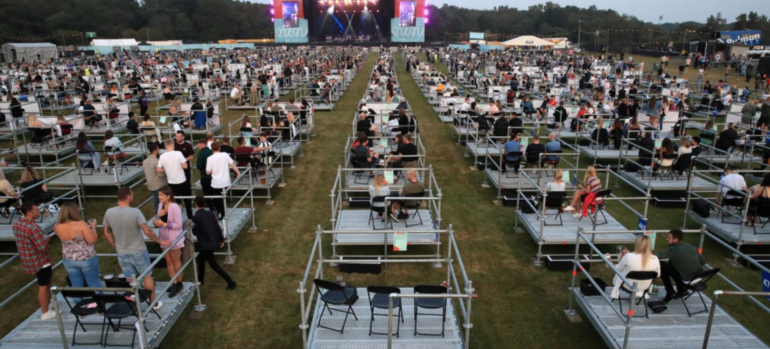Today, we dine outside, we work from home, and shop online, but concerts are one thing we have not been able to assimilate into our new normal in the Covid-19 era. They are greatly missed by many, and especially those in the music industry, who now more than ever rely on live shows as a main source of income in the age of music streaming.
While virtual concerts are certainly more plentiful than in-person concerts ever were, quantity does not equal quality, and IRL concerts cannot be replaced. Sing-screaming, feeling starstruck by your favorite artist in the flesh, sipping a beer, making new friends, being part of a crowd; these are the cherished elements of an in-person concert. Virtual concerts just aren’t the same, as we have learned just how important the social atmosphere is to a live show.
Concerts create the perfect storm for virus transmission
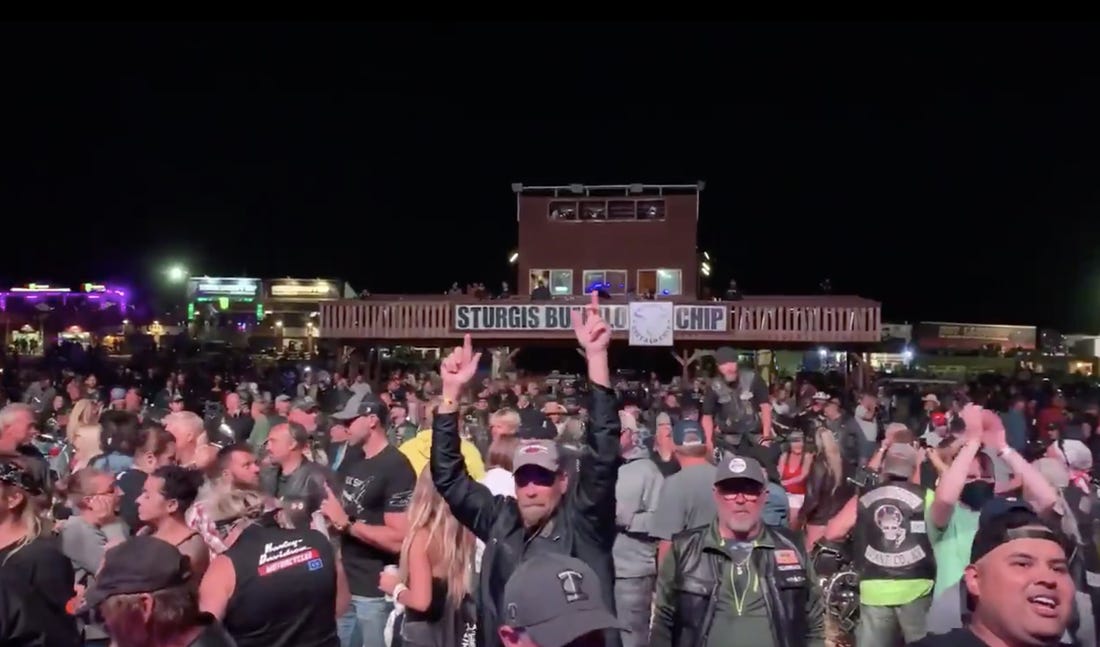
Most of the factors that contribute to our beloved in-person concerts are also the things that make concerts so dangerous. Good music prompts loud singing and shouting instead of talking, each producing far-flying respiratory droplets. Big crowds evoke intimate closeness, even with people you’ve never met, as people stand on top of one another to achieve the best views and proximity to the stage. The duration of concerts means exposure for extended periods of time, and the consumption of beverages is inevitable, making it impossible to keep masks on for the entire span of the event. All of these things make concerts the perfect super-spreader events, causing concert cancellations worldwide since the beginning of the pandemic.
There have, however, been concerts since Covid-19 hit. Both the Chainsmokers and Smash Mouth held concerts over the summer, sparking controversy and legal action over the obvious public health violations.
Meanwhile, across the pond, Newcastle, England set an example for future concerts in a post-Covid-19 era: the “Virgin Money Unity” arena was built specifically to meet social distancing requirements. An outdoor venue with 500 raised platforms for seating, the arena allowed clusters of up to five members each to watch, dance, and safely sing along with musician Sam Fender’s performance. Although the venue was unfortunately shut down due to lockdown measures in September, their sole concert provided a glimpse into what the first post-pandemic concerts could look like.
What will it take to get us there?
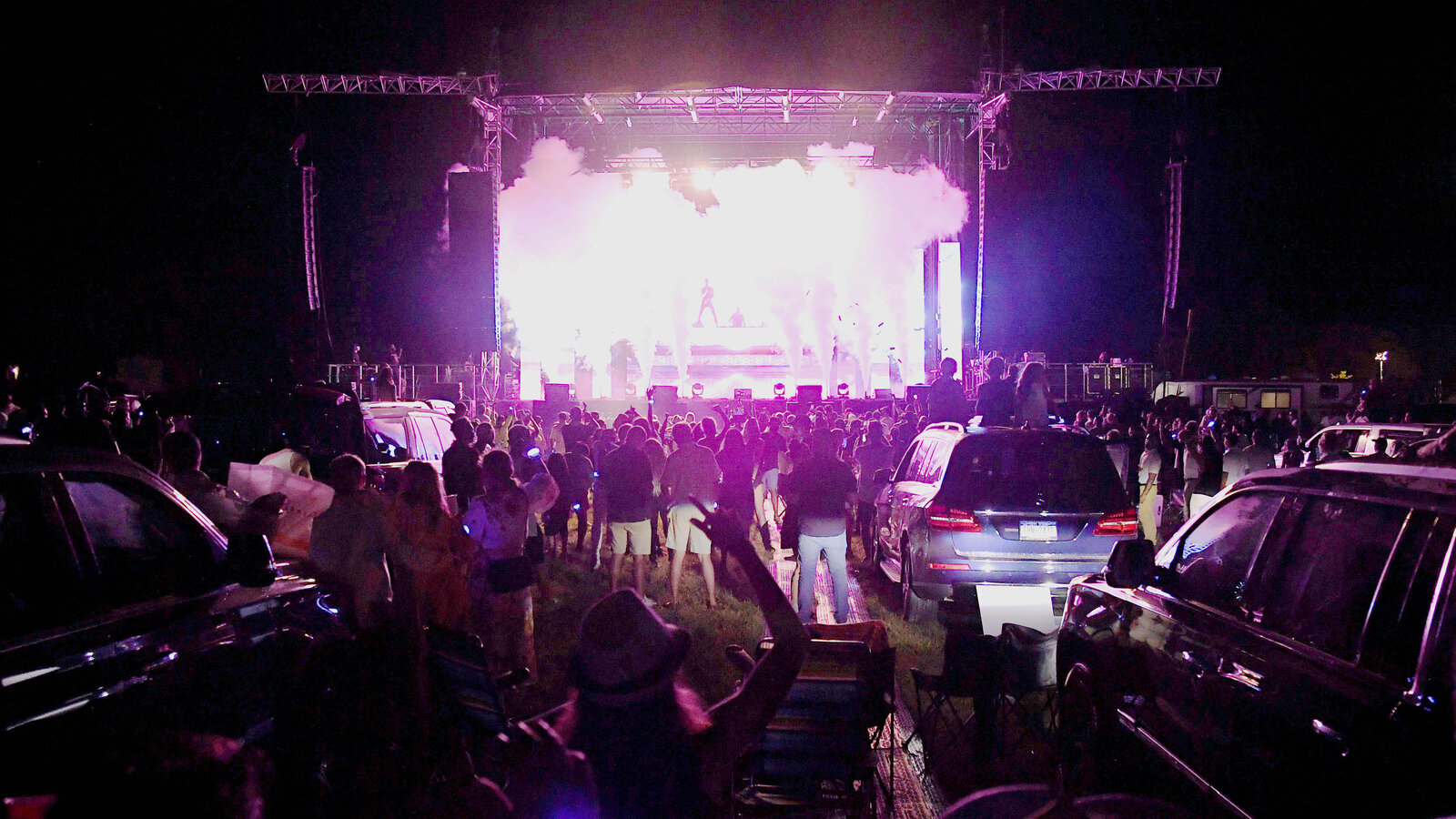
For starters, the virus needs to be more under control. With numbers of infected, hospitalizations, and deaths increasing across the United States, there is still a long way to go. Experts say it will likely take around two years to get concerts back to the way they were, but there are options in the meantime for a modified concert experience.
What can we expect?
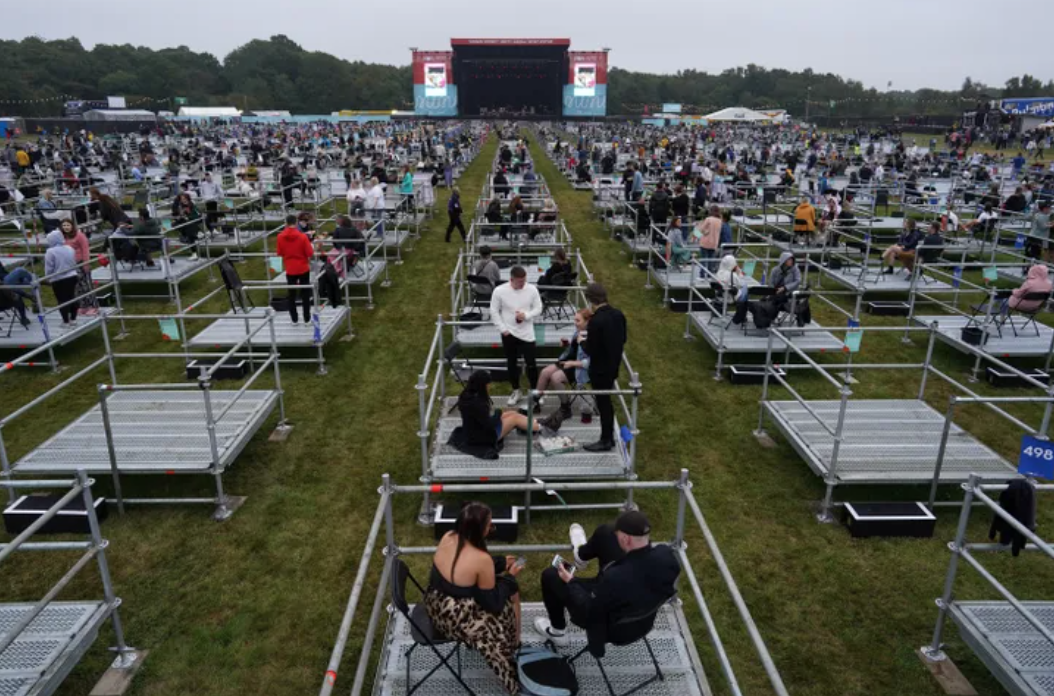
With a vaccine on the horizon, we may be able to see a return of concerts within the next year, but they will look different than what we are used to. Similar to the “Virgin Money Unity” arena, we can expect the first concerts to be at outdoor arenas only. Experts are predicting that small venues will be the next to open. Masks will likely be mandatory even after a vaccine is widely available, and other regulations will be in place to prevent any possible spread of the virus. Some of these may include proof of vaccination, or if rapid tests become more widely available, venues may require tests before entering. We can also expect checkpoints for temperature checks at various locations throughout venues, especially larger ones. Most notably, the capacity of venues will be greatly reduced.
Another hurdle for the music industry
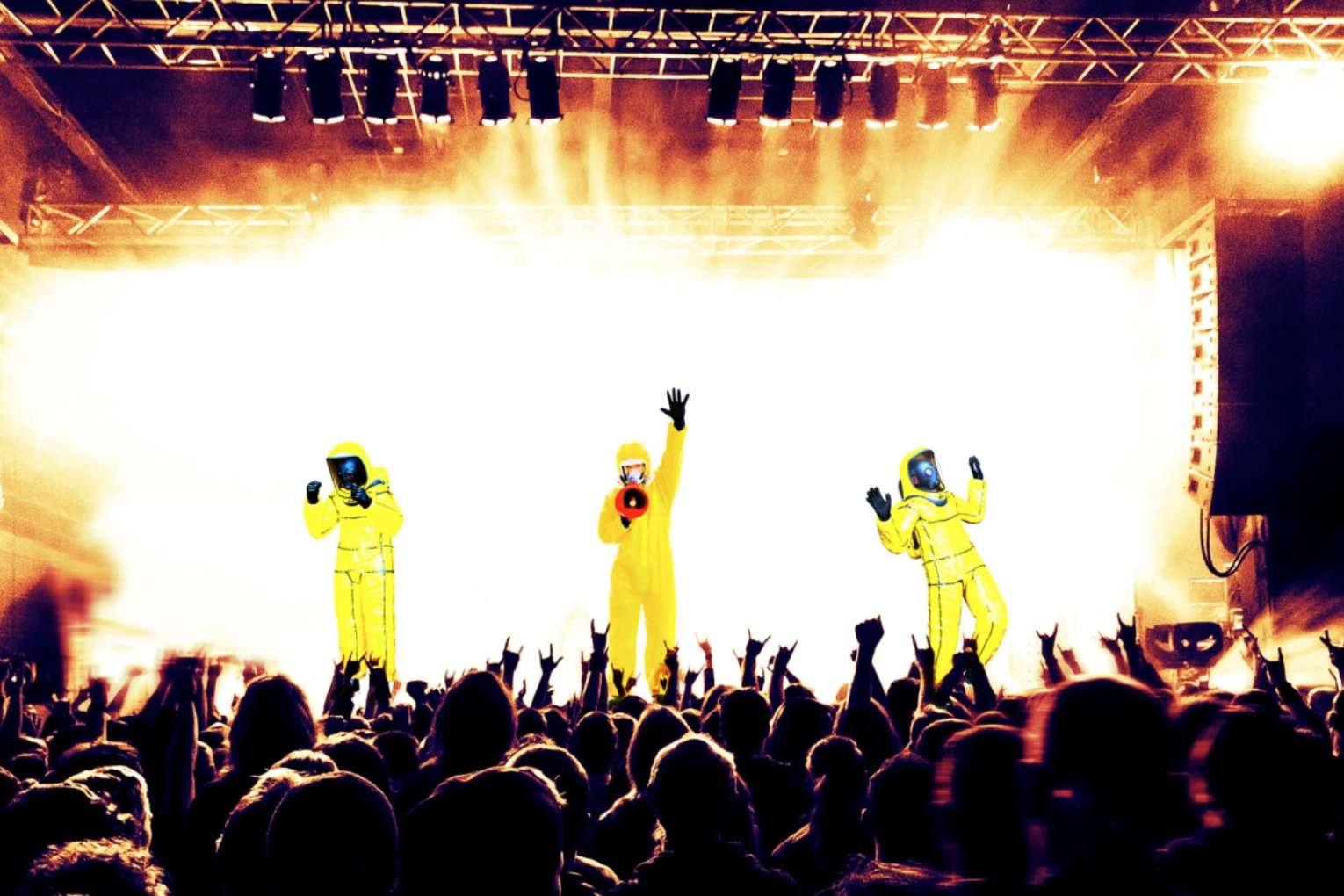
With these safety measures in place, the show can go on. The downside to this: the cost to the music industry. Reducing attendees and paying for safety precautions consumes much of the profit that musicians, promoters, and venue owners can expect to make on a show. According to Brian Labus, a professor of public health at the University of Nevada, Las Vegas, “the reduced capacity will make it difficult, or even impossible, for the bands and promoters to break even.” In the age of Spotify, Apple Music, and other streaming services, musicians (and the jobs that rely on them) are relying more and more on live performances to generate revenue. Now, with the hurdles created by the pandemic, music industry professionals are concerned about the industry’s ability to survive Covid-19.
So, the answer is yes.
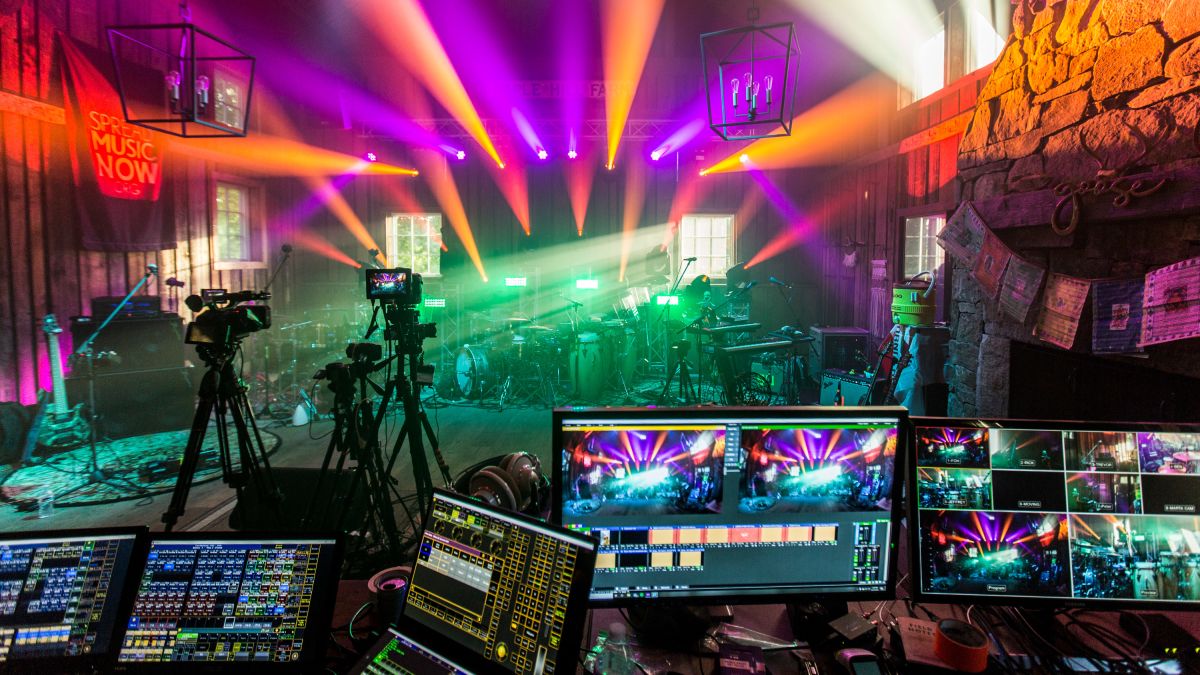
Eventually, concerts will return, but we have a while to wait before we can get back to a world of wiggling our way to the front row and rubbing shoulders with strangers (did we ever really like that?).
In the meantime, virtual concerts are still a thing. While they will never be a replacement for in-person concerts, there are far more of them available than there ever were IRL shows, they bring their own unique feeling of intimacy with the artist, and they are a great way to support the industry while we are all getting back up on our feet.
Grab a snack, take advantage of the live chat, and crank the volume.


